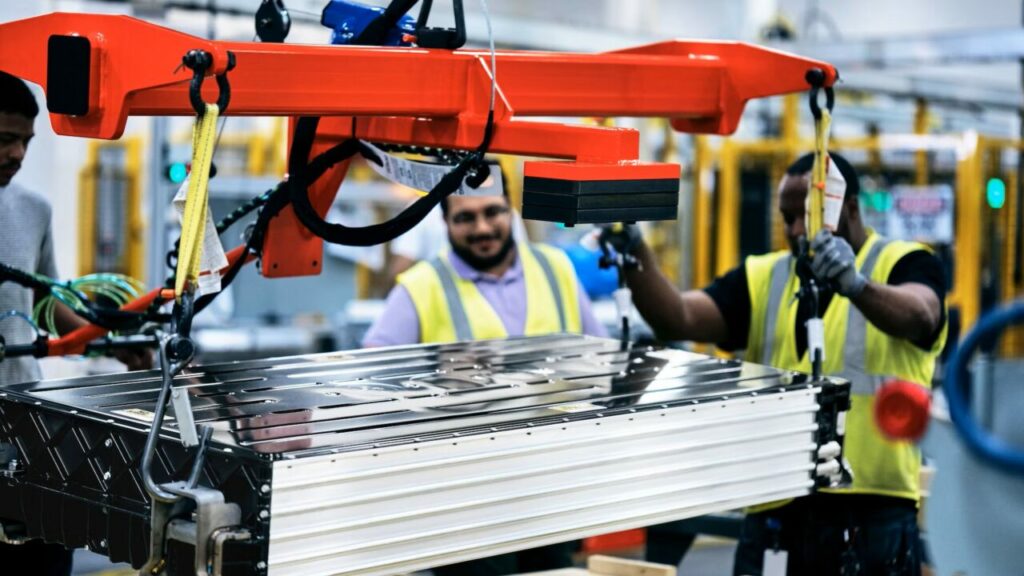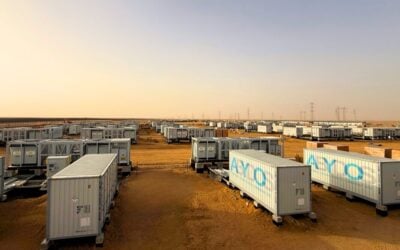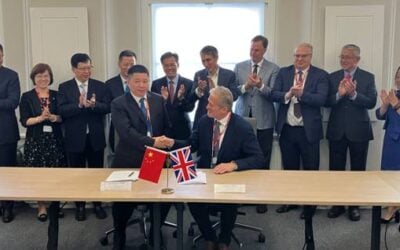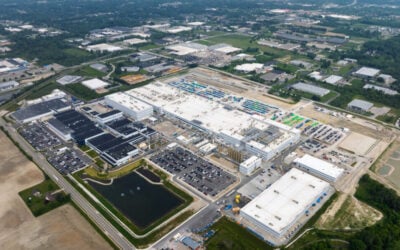
GE Vernova, the energy-focused business unit of General Electric, has signed a term sheet for the supply of lithium iron phosphate (LFP) battery modules from US startup Our Next Energy (ONE).
GE Vernova said last week (16 November) that the deal would allow it to source batteries for solar-plus-storage projects in its pipeline.
Enjoy 12 months of exclusive analysis
- Regular insight and analysis of the industry’s biggest developments
- In-depth interviews with the industry’s leading figures
- Annual digital subscription to the PV Tech Power journal
- Discounts on Solar Media’s portfolio of events, in-person and virtual
Being made in the US means that the projects would qualify for higher rate tax credit incentives available through the Inflation Reduction Act (IRA) for facilities constructed using domestically made equipment.
While the IRA extended the eligibility for investment tax credits (ITCs) to standalone energy storage projects, the ITC was already available for solar-plus-storage projects where the energy storage portion is mostly charged from the solar PV.
The ITC enables developers to use their tax bill to claim back 30% of the cost of capital equipment purchases, but the IRA also brought in adders worth an extra 10% off. That equates to US$35/kWh for battery cells and US$10/kWh for battery packs.
According to guidance released by the IRS in May, US energy storage projects need to use at least 40% US-made equipment to qualify, with the threshold rising to 55% from 2027.
Our Next Energy (ONE) is among the many players, including startups and established manufacturers, that are developing production facilities in the US. ONE raised US$300 million early this year for its plan to build a gigafactory in Michigan, while the company has also designed its own containerised battery energy storage system (BESS) solution, called Aries Grid, which it claims will be available in configurations of up to 6MWh.
For GE Vernova however, ONE looks set to supply cells and modules, rather than a complete solution. Instead, ONE’s products will be integrated into GE Vernova’s own utility-scale BESS solution, FlexReservoir.
FlexReservoir is delivered on either a turnkey engineering, procurement and construction (EPC) basis, or as an engineered equipment package (EEP), and uses GE’s own FlexIQ controls platform for asset coordination and the company’s FlexInverters.
US government intervention fosters growth of domestic investment
ONE’s closest rivals or counterparts include KORE Power and American Battery Factory (ABF), which are currently also making their bids to be among the country’s first domestically-headquartered LFP manufacturers serving the BESS sector.
Meanwhile, the likes of LG Energy Solution from South Korea and Gotion from China are also building new US gigafactories set to supply the BESS industry and Energy-Storage.news has heard from sources at another major Chinese battery player EVE Energy and Chinese solar PV company Trina Solar that both are exploring bringing online US-based production facilities.
Together with the Bipartisan Infrastructure Law, from which US$3.5 billion of funding for domestic battery production was announced a few days ago, with the Inflation Reduction Act the US government appears to have been successful in kicking off interest in local production among a wave of clean energy investments that totalled US$270 billion since the IRA was passed, according to the American Clean Power Association (ACP).
While not talking directly about cells, research group Clean Energy Associates (CEA) said a few weeks ago that it forecast the incentivisation could make US-made DC battery storage containers cost-competitive with those made in China as early as 2025.
Earlier this year CEA and battery supply chain analysts Benchmark Minerals noted that battery gigafactory investment in the US has now overtaken Europe, despite the latter holding a head start, and the CEO of Freyr Battery, a European startup, said in an interview with this site last week that it made more sense to focus on his company’s fledgling US plans while putting its much more advanced plans in Europe on hold.
“GE Vernova has deployed its FlexReservoir BESS systems globally. Now, in partnership with Our Next Energy, we’re bringing American-made batteries to power local communities, bolstering manufacturing and job growth,” GE Vernova’s head of solar & storage solutions Prakash Chandra said.
While Chandra said the agreement with ONE was testament to the US government’s “leadership”, which had fostered “job creation and energy self-sufficiency, and investments in the energy sector,” no indication was given in the announcement as to when GE Vernova expected to start taking deliveries of ONE products, nor of the potential size of a supply deal, or how long it might run.
Given the constraints over supply of batteries, which have eased since a year or two ago, many system integrators are looking to lock in multi-year, multi-gigawatt-hour supply deals with manufacturers.






